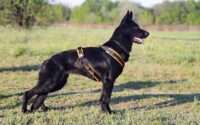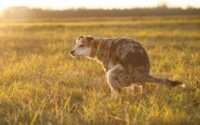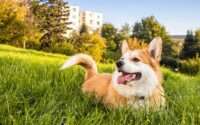Shiba Inu Dog Price Revealed: How to Avoid Overpaying for Your Furry Friend
It’s no wonder that Shiba Inu dogs are one of the most beloved dog breeds in the world. These adorable pups are known for their fox-like appearance, spirited personalities, and loyal nature. It’s natural to want to know the cost of adding a Shiba Inu to your family if you’re considering it.
In this article, we’ll take a deep dive into the factors that affect Shiba Inu dog prices, and help you understand what you can expect to pay for one of these beloved pups.
Understanding the Shiba Inu Dog Breed
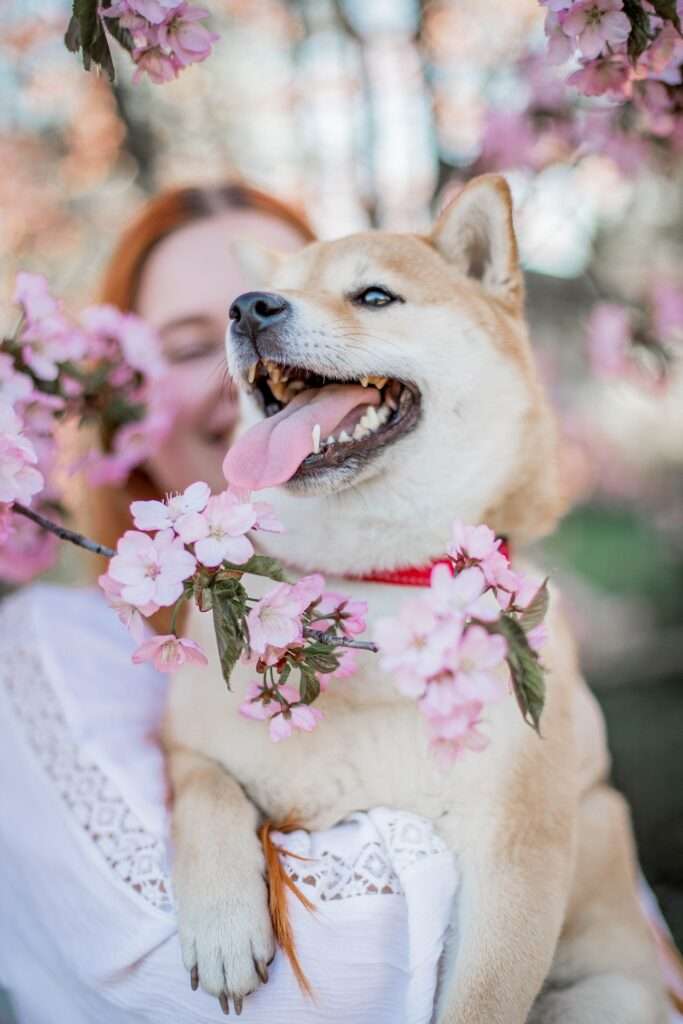
Origins and Size
The Shiba Inu is a charming dog breed that originated in Japan. These dogs were initially bred as skilled hunting companions, primarily used for small game hunting. Shiba Inus are small to medium-sized dogs, with males and females typically weighing between 17 and 23 pounds. They stand at a height of about 13.5 to 16.5 inches at the shoulder. Despite their size, Shiba Inus possess a sturdy and muscular build.
Distinctive Coat and Colors
One of the most eye-catching features of the Shiba Inu is their beautiful coat. They have a double coat consisting of a soft and dense undercoat, topped with a straight and coarse outer coat. This combination provides excellent protection against various weather conditions. Shiba Inus come in several coat colors, including red, black and tan, and sesame. Their plush fur requires regular brushing to maintain its appearance and prevent matting.
Temperament and Training
Shiba Inus have a unique temperament that combines loyalty, affection, and independence. They form strong bonds with their families and are known to be devoted companions. However, their independent nature can sometimes make them a bit stubborn. Training a Shiba Inu requires patience, consistency, and positive reinforcement techniques. They respond well to rewards-based training methods and enjoy mental stimulation.
Prey Drive and Exercise Needs
Due to their hunting background, Shiba Inus have a strong prey drive. They can be easily tempted to chase small animals, so it’s essential to keep them on a leash or in a securely fenced area during walks and playtime. This breed has a moderate energy level and requires daily exercise to stay physically and mentally healthy. Engaging in activities such as walks, runs, or play sessions not only provides them with the necessary physical outlet but also strengthens the bond with their owners.
Grooming and Care
To keep their coat in good condition, Shiba Inus require regular grooming. This includes brushing their fur at least once or twice a week to remove loose hair and prevent matting. They shed moderately throughout the year and have more intense shedding periods during seasonal transitions. Occasional baths, nail trimming, and ear cleaning are also part of their grooming routine. Additionally, Shiba Inus are generally clean dogs and tend to groom themselves like cats.
Socialization and Interaction
Early socialization is crucial for Shiba Inus to develop into well-rounded and confident dogs. It’s important to expose them to various people, animals, and environments from a young age to help them become comfortable and adaptable. While they can be reserved around strangers, proper socialization can help reduce any potential shyness or aggression. Regular interaction with their family, including playtime and training, is essential to maintain a strong bond with these intelligent and loyal dogs.
Remember, every Shiba Inu is unique, and individual personalities and traits can vary. It’s important to spend time getting to know your Shiba Inu and provide them with the love, care, and mental stimulation they need to thrive.
Factors Affecting the Price of Shiba Inu Dogs
When considering the price of a Shiba Inu dog, several factors come into play. These factors can vary widely and have an impact on the overall cost. Understanding these factors will help potential owners make informed decisions when searching for their perfect Shiba Inu companion.
- Breeder Reputation and Location: The reputation of the breeder and their location can significantly influence the price of a Shiba Inu dog. Reputable breeders who prioritize responsible breeding practices, health testing, and proper care for their dogs often charge higher prices. Breeding Shiba Inus ethically and responsibly requires significant time, effort, and resources. Breeders with a well-established reputation for producing healthy, well-socialized puppies may have a higher demand, leading to higher prices. Additionally, breeders in regions with a higher cost of living or limited availability of Shiba Inus may also charge more.
- Purebred vs. Mixed Breed: Purebred Shiba Inus, with documented lineage and recognized pedigree, are generally more expensive than mixed breed dogs. Purebred Shiba Inus have predictable traits and conform to specific breed standards, which can be appealing to those seeking a dog with a certain appearance and temperament. Mixed breed Shiba Inus, on the other hand, may have a more diverse set of characteristics inherited from their parent breeds. The price difference reflects the higher demand for purebred Shiba Inus.
- Age and Gender: Age and gender can also impact the price of a Shiba Inu. Typically, younger puppies are more sought after and therefore tend to be more expensive. Young puppies require more time, effort, and resources to care for, including vaccinations, socialization, and training. Additionally, female Shiba Inus may be priced higher than males due to the potential breeding prospects they offer.
- Coat Color and Markings: The coat color and markings of a Shiba Inu can also affect the price. Some coat colors, such as red, are more popular and desirable, leading to higher prices. Shiba Inus with unique or rare markings may also command a higher price. However, it’s important to note that responsible breeders prioritize the health and temperament of their dogs over coat color, so pricing should not be the sole determining factor when choosing a Shiba Inu.
- Health, Vaccination Status, and Training: The health and vaccination status of a Shiba Inu, as well as the training and socialization they have received, can influence the price. Dogs that have undergone thorough health checks, received necessary vaccinations, and are free of genetic health issues are typically priced higher. Furthermore, Shiba Inus that have received early socialization and basic training are often in higher demand, as they may require less initial investment in training and behavior modification.
Shiba Inu Price Ranges
When it comes to the price of a Shiba Inu dog, there is a wide range to consider. Several factors contribute to the variation in prices, making it essential for potential owners to understand the factors involved. According to Puppies.com, the average cost of a Shiba Inu puppy in the United States is approximately $1,500.
However, it’s important to note that the price range for Shiba Inu puppies can be quite diverse. On the lower end, you may find Shiba Inu puppies priced around $500, while on the higher end, some can cost $5,000 or even more. The specific price will depend on various factors discussed earlier, including breeder reputation, location, purebred status, coat color, and health and training of the dog.
Breeders in high-demand areas, such as California or New York, where Shiba Inus are particularly popular, may charge more for their puppies due to increased demand and higher living costs. Breeders who specialize in rare coat colors or unique markings may also price their Shiba Inus higher, reflecting the rarity and desirability of these traits.
It’s important to note that while price can be an indicator of certain factors, it doesn’t always correlate directly with the quality of the dog. A higher price doesn’t guarantee a healthier or better-quality Shiba Inu. It’s crucial to conduct thorough research and find a reputable breeder who prioritizes the health, temperament, and overall well-being of their dogs.
By doing your due diligence and finding the right breeder, the price you pay for a Shiba Inu will not only bring you a loving companion but also peace of mind knowing that you have made a well-informed and responsible choice.
Adopting a Shiba Inu
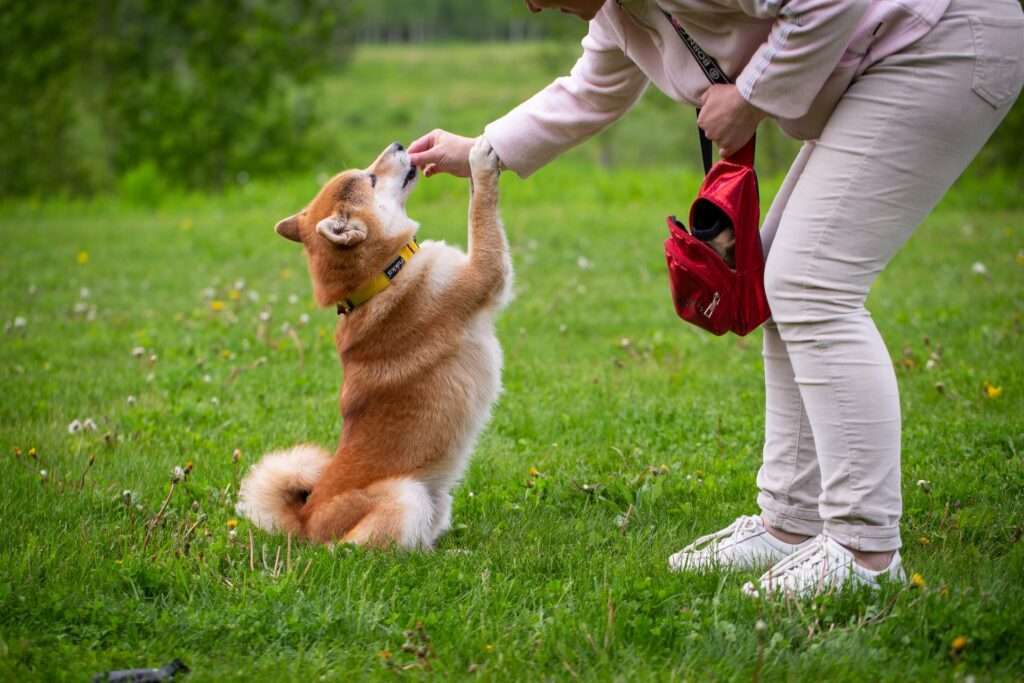
If you’re considering adding a Shiba Inu to your family, adopting from a rescue organization or shelter is a fantastic option. Not only does adopting provide a loving home for a dog in need, but it also offers a fulfilling and rewarding experience for you as an owner.
Shiba Inu rescues can be found throughout the country, and they often have a variety of dogs of different ages and backgrounds available for adoption. By adopting, you have the opportunity to provide a second chance to a Shiba Inu who may have had a rough start in life or found themselves in unfortunate circumstances. These dogs are deserving of a loving and caring home where they can thrive and be cherished.
One of the benefits of adopting is that it can be more affordable compared to purchasing from a breeder. Adoption fees typically range from $200 to $500, which often includes vaccinations, spaying or neutering, and sometimes microchipping. The adoption fee helps support the rescue organization’s efforts in rescuing and caring for Shiba Inus and other dogs in need.
When adopting a Shiba Inu or any rescue dog, it’s important to be prepared for potential challenges. Rescue dogs may come from various backgrounds, and their histories may be unknown or limited. They may have experienced neglect, abandonment, or other difficult situations. As a result, they may require additional patience, understanding, and training to help them adjust and overcome any behavioral issues they may have.
However, with time, love, and consistent training, rescue dogs can become wonderful companions. Shiba Inus, known for their loyalty and intelligence, can form strong bonds with their adoptive families. Many rescue dogs are eager to learn, adapt, and be a part of a loving home. They can bring immense joy and love into your life, making the adoption journey a truly rewarding experience.
Cost of Owning a Shiba Inu
While the initial cost of a Shiba Inu dog can be significant, it’s also important to consider the ongoing cost of owning a dog. Shiba Inus, like all dogs, require food, grooming supplies, and veterinary care throughout their lives.
The amount you’ll spend on food and supplies for your Shiba Inu can vary depending on their age and size. However, you can expect to budget around $50 to $75 per month for these expenses. Veterinary care can also be expensive, with routine visits and vaccinations costing around $100 to $200 per year, and emergency care and surgeries costing much more.
Training and socialization are also important for Shiba Inus, and while you can certainly train your dog yourself, enrolling in obedience classes or working with a professional trainer can also be helpful. Expect to spend around $100 to $300 for a basic obedience class, and more for more advanced training. Owning a Shiba Inu can be a significant financial investment, but it’s also a rewarding and fulfilling experience.
Caring for Your Shiba Inu
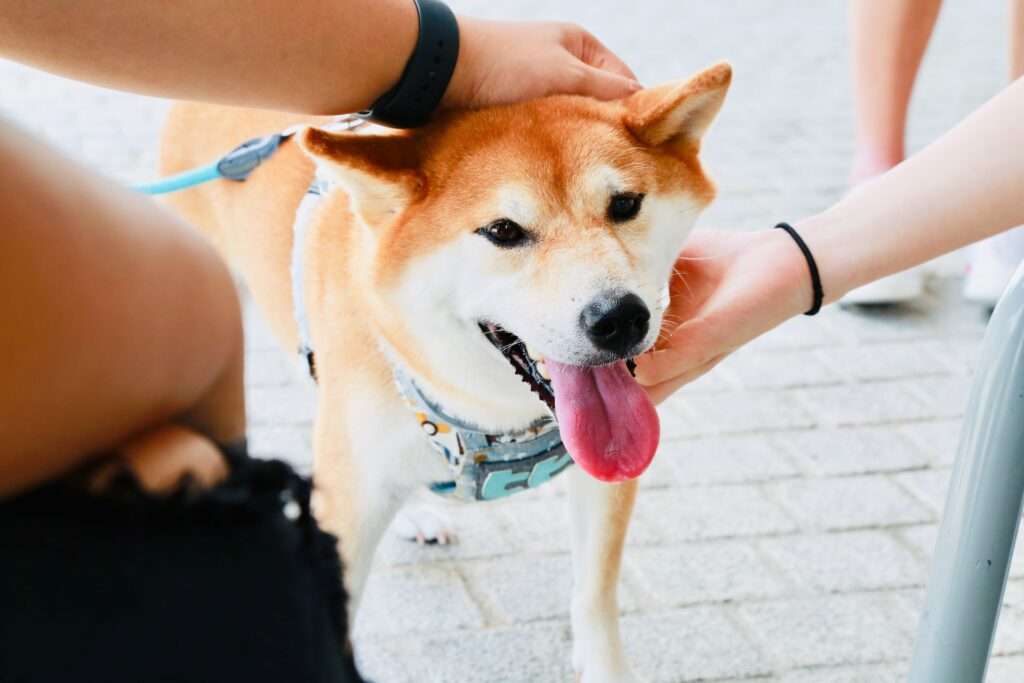
Caring for a Shiba Inu involves providing them with proper nutrition, regular exercise, socialization, and grooming. These intelligent and active dogs thrive when their physical and mental needs are met, and as a responsible owner, it’s crucial to prioritize their well-being.
- Nutrition: Feeding your Shiba Inu a high-quality, balanced diet is essential for their overall health and longevity. Choose a dog food that is appropriate for their age, size, and activity level. Consult with your veterinarian to determine the right portion sizes and feeding schedule for your Shiba Inu. Additionally, make sure your dog always has access to fresh water.
- Exercise: Shiba Inus are energetic dogs that require regular exercise to keep them physically fit and mentally stimulated. Daily walks, play sessions, and interactive toys are all great ways to engage your Shiba Inu’s mind and body. Consider providing them with opportunities for off-leash exercise in a securely fenced area or taking them to a dog park to socialize and burn off excess energy.
- Socialization: Proper socialization is vital for Shiba Inus to develop into well-rounded and confident dogs. Introduce your Shiba Inu to various people, animals, and environments from a young age. Positive experiences with different situations will help them feel comfortable and reduce the likelihood of fear or aggression toward unfamiliar people or animals. Puppy classes and organized playdates can also be beneficial for their social development.
- Grooming: Shiba Inus have thick double coats that shed heavily twice a year, requiring regular grooming to keep their coat healthy and reduce shedding. Brush your Shiba Inu’s coat at least once or twice a week to remove loose fur, prevent matting, and promote healthy skin and coat. During shedding seasons, daily brushing can help manage the shedding. Additionally, trim your dog’s nails regularly to prevent overgrowth and discomfort. Proper dental care, including regular teeth brushing, can also help prevent dental issues.
- Veterinary Care: Regular veterinary check-ups are essential for maintaining your Shiba Inu’s health. Schedule annual wellness exams to ensure your dog is up to date on vaccinations, receive preventive treatments for parasites, and undergo routine health screenings. Regular visits to the veterinarian allow for early detection and treatment of any potential health concerns.
- Mental Stimulation: Shiba Inus are intelligent dogs that thrive on mental stimulation. Engage their minds with puzzle toys, interactive games, and obedience training sessions. Providing mental challenges helps prevent boredom and destructive behaviors.
Remember, owning a Shiba Inu is a long-term commitment that requires time, patience, and dedication. Building a strong bond with your Shiba Inu through positive reinforcement training, consistent care, and love will ensure a happy and fulfilling life for both of you.
Conclusion
In conclusion, the price of a Shiba Inu dog can vary widely depending on several factors, including breeder reputation and location, purebred vs mixed breed, age and gender of the dog, coat color and markings, health and vaccination status, and training and socialization. While they can be expensive, Shiba Inus are well worth the investment for the right family.
Adopting a Shiba Inu from a rescue organization or shelter can be a more affordable option, and also helps to reduce the number of dogs in need of homes. However, it’s important to understand that rescue dogs may have unknown backgrounds and may require some extra patience and training.
It’s also important to consider the ongoing cost of owning a Shiba Inu, including food and supplies, veterinary care, and training and socialization. With proper budgeting and planning, you can provide a happy and healthy home for your beloved Shiba Inu companion.
In the end, owning a Shiba Inu can be a wonderful experience, and one that brings love and joy into your life for years to come. By doing your research and finding a reputable breeder or rescue organization, you can ensure that you bring home a healthy and happy Shiba Inu that will become a cherished member of your family.
Frequently Asked Questions
Q: How much does a Shiba Inu puppy cost?
A: The price of a Shiba Inu puppy can vary depending on various factors such as breeder reputation, location, lineage, and the overall quality of the dog. On average, you can expect to pay anywhere from $1,000 to $2,500 for a Shiba Inu puppy. However, prices can go higher for show-quality or champion bloodline puppies.
Q: Are there any additional costs besides the initial purchase price?
A: Yes, there are additional costs to consider when getting a Shiba Inu. Some of these include veterinary care (vaccinations, spaying/neutering, regular check-ups), grooming, food, toys, bedding, training classes, and possible unexpected medical expenses. It’s important to budget for these ongoing expenses to ensure your Shiba Inu’s well-being.
Q: Where can I find Shiba Inu puppies for sale?
A: You can find Shiba Inu puppies for sale from reputable breeders, rescue organizations, or adoption centers. It’s recommended to do thorough research to find a reputable source that prioritizes the health and welfare of their dogs. Online platforms, local newspapers, and breed-specific websites are good places to start your search.
Q: What should I look for in a reputable breeder?
A: When choosing a breeder, it’s important to prioritize ethical practices and the well-being of the dogs. Look for breeders who health test their breeding dogs, provide proper socialization for the puppies, and are transparent about their breeding practices. They should also be willing to answer your questions, provide references, and offer support throughout the dog’s life.
Q: Why do Shiba Inu puppies from reputable breeders cost more?
A: Reputable breeders invest time, effort, and resources into producing healthy, well-socialized puppies. They prioritize responsible breeding practices, including health testing, proper care, and genetic diversity. The higher price reflects the breeder’s commitment to producing quality Shiba Inus and ensuring their puppies go to loving homes.
Q: Are there any cheaper alternatives to purchasing a Shiba Inu puppy?
A: If the cost of a Shiba Inu puppy is a concern, you can consider adopting one from a rescue organization or a shelter. While you may not have the same control over the puppy’s lineage or early socialization, you can still find wonderful companions who are in need of a loving home. Adoption fees are typically lower than purchasing from a breeder.
Q: What should I consider before getting a Shiba Inu?
A: Before bringing a Shiba Inu into your home, consider their specific needs and temperament. Shiba Inus are known for their independence, strong-willed nature, and high energy levels. They require consistent training, mental stimulation, and regular exercise. It’s essential to ensure you have the time, resources, and commitment to meet their needs before making a decision.
Please note that the information provided here is general and may vary depending on your specific location and circumstances. It’s always recommended to do thorough research and consult with professionals when considering getting a Shiba Inu or any other pet.


